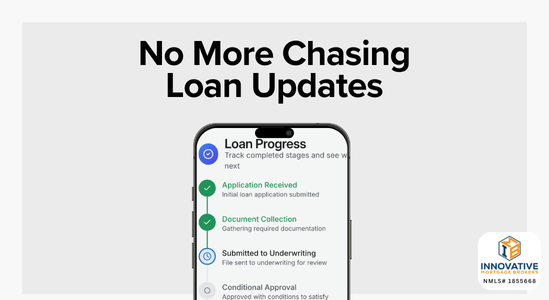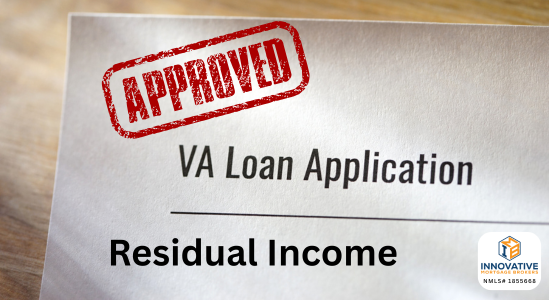Mortgage rate volatility, oil shocks, and why execution matters more than quotes When a war…
Top 7 Mistakes First-Time Homebuyers Make

Buying your first home is an exciting milestone. But the journey to homeownership can be full of complexities. At Innovative Mortgage Brokers, we’re here to help you avoid common pitfalls and make informed decisions. Here are the top 7 mistakes first-time homebuyers often make.
1. Not Checking Credit Score
The Issue
Many first-time homebuyers underestimate the importance of their credit score in the home buying process. They may not realize that their credit score can significantly affect their mortgage interest rates and even their eligibility for certain types of loans. Ignoring your credit score can lead to unpleasant surprises when applying for a mortgage, such as higher than expected interest rates or even loan denial.
The Solution
It’s crucial to check your credit score early in the home buying process. You can request a free copy of your credit report from each of the three major credit reporting agencies (Experian, TransUnion, and Equifax) once a year through AnnualCreditReport.com.
Review your credit report carefully for any errors or discrepancies. If you find any, dispute them immediately with the credit bureau.
If your credit score is lower than you’d like, take proactive steps to improve it before applying for a mortgage. This could include paying down debts, making all of your payments on time, and avoiding new debt.
By understanding your credit score and working to improve it, you’ll put yourself in a stronger position when it’s time to apply for a mortgage. You’ll likely qualify for better interest rates, which can save you thousands of dollars over the life of your loan.
At Innovative Mortgage Brokers, we are always here to support you in reviewing and understanding your credit score if you need help or have questions. We can help you interpret your credit report, explain how it impacts your mortgage prospects, and provide tailored advice and a plan on improving your credit standing.
2. Skipping Pre-Approval
The Issue
Skipping pre-approval is a common mistake first-time homebuyers make. Without a mortgage pre-approval, you are essentially house shopping blindfolded. It leaves you unaware of how much you can borrow from a lender, which can lead to setting unrealistic expectations or missing out on homes that actually fit within your budget. Furthermore, it might cause sellers to question your seriousness and readiness to purchase, especially in a competitive market.
The Solution
Securing a mortgage pre-approval should be one of the first steps in your home buying journey. This involves submitting a mortgage application and providing the loan officer with necessary financial information. The loan officer will help you then determine the loan amount they’re willing to offer.
A pre-approval not only provides a clear idea of your budget but also strengthens your bargaining position. Having a pre-approval letter in hand shows sellers that you’re a serious, qualified buyer who has already started the mortgage process. This can be particularly advantageous in the current seller’s market where there are more buyers than available homes.
Moreover, pre-approval can expedite the purchasing process. Since lenders have already assessed your financial situation, they can quickly finalize your loan once you’ve found your dream home. This means less stress and more confidence throughout your home buying journey.
So, don’t bypass this critical step. By getting pre-approved, you’ll set a realistic budget, demonstrate your commitment to potential sellers, and ultimately pave the way for a smoother, faster path to homeownership.
At Innovative Mortgage Brokers, we streamline the pre-approval process for prospective homebuyers. We guide clients through the initial application, helping them provide the necessary financial documentation to support their request for pre-approval. This comprehensive assessment of documentation helps in evaluating the client’s financial standing, which is a crucial step in obtaining pre-approval.
3. Overlooking Additional Costs
The Issue
Many first-time homebuyers focus primarily on the interest rate when comparing mortgage options. While the interest rate is crucial, it’s not the only factor to consider. Lender fees, also known as closing costs, can significantly impact the total cost of your mortgage. These fees can include loan origination fees, processing fees, underwriting fees, and discount points among others. It’s possible to get a low-interest rate, but if it comes at high cost, you may end up paying more over the life of the loan.
The Solution
To avoid this pitfall, it’s important to work with a reputable mortgage broker who can help navigate these complexities. A good mortgage broker will shop around for the most competitive rates and fees, ensuring you get a great loan that fits your individual needs. They can explain each fee, help you understand what’s negotiable, and guide you through the process of comparing loan estimates from different lenders.
Working with a reputable mortgage broker can save you time, money, and stress in the home buying process. They can provide valuable advice and ensure you’re getting the best possible deal on your mortgage.
4. Waiting to Buy for Rates to Come Down
The Issue
First-time homebuyers often focus heavily on mortgage rates, sometimes to the point of delaying their purchase in hopes that rates will drop. While it’s true that lower rates can save you money over the life of your loan, waiting for the perfect rate can also present risks. For example, while you’re waiting, home prices could rise, or your personal financial situation could change.
The Solution
In an unpredictable real estate market, timing mortgage rates can be a challenging task. While it’s human nature to want the best deal possible, waiting for potentially lower rates might stall your home buying journey indefinitely. It’s important to remember that interest rates fluctuate in response to a variety of economic factors, many of which are beyond our control. Attempting to anticipate these changes could leave you in a state of perpetual waiting and possibly result in missed opportunities.
A more practical approach could be to buy your home now with the current rates and consider refinancing it later if rates drop significantly. This strategy allows you to secure your dream home without delay and gives you the option to reduce your mortgage payments in the future should favorable rates become available. Refinancing essentially involves replacing your existing mortgage with a new one, ideally with better terms. If done correctly, this could lead to substantial savings over the life of your loan.
5. Neglecting Home Inspections
The Issue
One common mistake that some homebuyers, especially first-timers, make is neglecting to have a thorough home inspection before finalizing their purchase. The excitement of buying a home and the desire to expedite the process can sometimes overshadow the importance of this critical step. However, skipping a home inspection can have serious repercussions. It might lead to unanticipated problems and costly repairs after you’ve already moved in. Issues like structural damage, faulty wiring, plumbing issues, or even pest infestations could be lurking beneath the surface, unbeknownst to the untrained eye.
The Solution
Buying a home is a significant investment, and it’s crucial to know exactly what you’re getting into. Even if you decide to waive the inspection clause in your real estate contract to make your offer more attractive to sellers, it’s still highly recommended to get an inspection done. This helps you understand the true condition of the property and can help you avoid costly surprises down the line.
An inspection can reveal hidden issues with the property that aren’t immediately visible during a walk-through, such as problems with the plumbing, electrical systems, roof, foundation, and more. These are things you’ll want to be aware of before finalizing the purchase. Knowing what’s wrong with the property doesn’t just help you anticipate potential repairs, but it also gives you a realistic picture of the home beyond its aesthetic appeal.
In conclusion, while waiving the inspection clause might give you a competitive edge in a hot real estate market, it doesn’t mean you should skip the inspection entirely. It’s about being an informed buyer and making sure you’re comfortable with your investment. After all, a home is more than just a property; it’s where you’ll build your life.
6. Falling in Love with a House
The Issue
When buying a house, it’s easy to fall in love with a property and let our emotions guide our decisions. This emotional attachment can sometimes lead us to overspend or overlook major problems with the house. We might be so captivated by the charming garden, the cozy fireplace, or the spacious kitchen, that we fail to notice the leaky roof, the outdated electrical system, or the unstable foundation. This could potentially result in costly repairs down the line or paying more than the house is truly worth.
The Solution
It’s crucial to stay objective during the home buying process. Treat it like a business transaction rather than an affair of the heart. Make sure to thoroughly inspect the house and consider hiring a professional home inspector to identify any potential issues. It can also help to make a list of non-negotiables before you start your house hunt. These could include things like the number of bedrooms, proximity to work or schools, or essential home features like a modern kitchen or a large backyard. Stick to this list and avoid getting sidetracked by cosmetic features that can be changed or added later.
Remember, a house is a significant investment. While it’s important to find a place you love, it’s equally important to ensure you’re making a wise financial decision. By staying objective, you’ll be better equipped to find a home that meets your needs and stays within your budget.
7. Using Wrong Real Estate Agent or Lender
The Issue
Buying a home is a complex process with many moving parts. From house hunting and securing a mortgage to negotiating the price and closing the deal, it can be difficult to navigate all these steps on your own. Without professional guidance, you might overlook important details, make mistakes that could cost you, or find the entire process too stressful.
The Solution
Instead of going it alone, consider hiring a real estate agent and a separate mortgage broker. These professionals have the expertise and experience to guide you through each step of the home buying process.
A good real estate agent can help you find homes within your budget, arrange viewings, negotiate with sellers, and handle the paperwork. They understand the local market and can provide valuable insights that you might miss on your own.
Meanwhile, a mortgage broker can help you secure the most competitive loan for your needs. They have access to a wide range of lenders and can compare offers to find the most favorable terms for your situation. They can also explain the fine print and ensure you understand all the costs involved in your mortgage.
While it might be tempting to enlist the help of a friend or family member who works in the industry, it’s important to remember that this is one of the biggest financial decisions you’ll make in your life. You need professionals who can advocate for your best interests, not just someone who’s doing you a favor.
By hiring professionals, you’re likely to save money in the long run. They can negotiate better deals, help you avoid costly mistakes, and ensure you’re making a sound investment. Plus, with their support, the home buying process will be less overwhelming. So, consider investing in professional help—it’s worth it.
Conclusion
Embarking on the journey of buying your first home should be an exhilarating adventure, not a source of stress. By sidestepping these frequent missteps, you’re paving the way for a seamless and enjoyable home buying journey.
Here at Innovative Mortgage Brokers, we’re dedicated to guiding you through each step, ensuring you feel confident and informed. Let’s transform your dream of homeownership from a mere idea into a reality!




